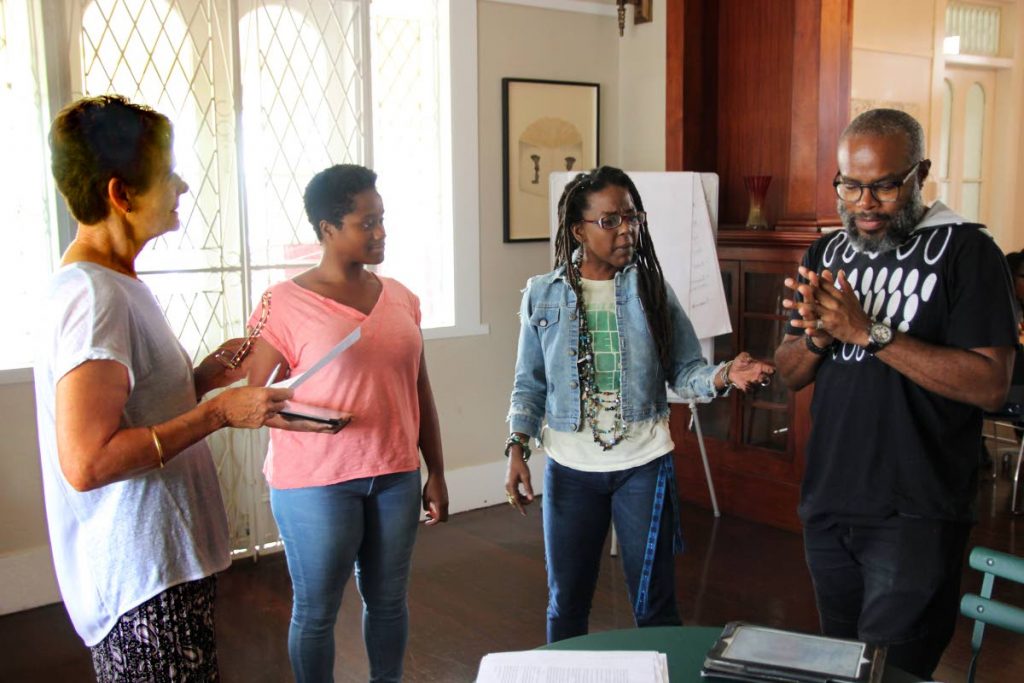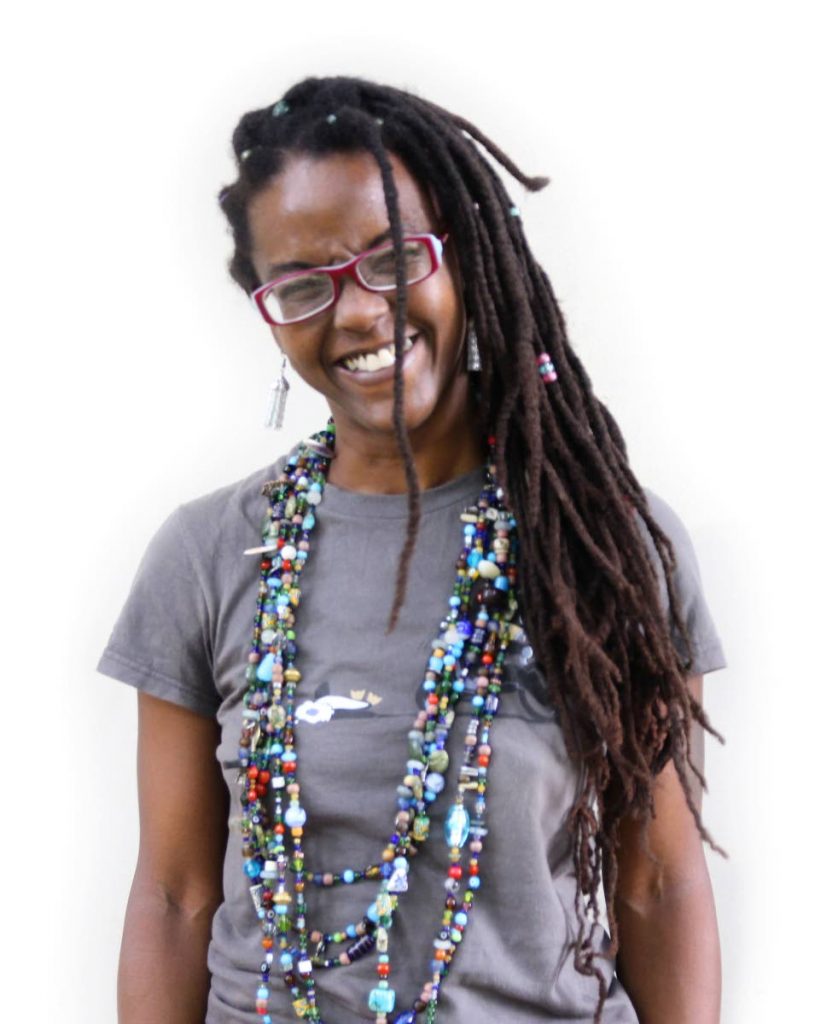Water more than flour

When Elisha Efua Bartels saw the call for radio dramas by local media company Trini Good Media for BBC Radio 3 and Carifesta XVI’s Festival Radio in February, she knew it was perfect for her.
For years she has been contemplating writing a series of radio plays with entertainer Wendell Manwarren, but they never did it. She also has a strong desire to write plays that bring local folklore characters into modern times. So it all came together perfectly for this multi-disciplined artist.
Bartels, 41, told Sunday Newsday she was halfway through writing her stage play Water More Than Flour when she saw the call and decided to submit it, even though it was not a radio play.
Water More Than Flour is a local contemporary play with an element of folklore that is focused on relationship drama, to which almost anyone who has been in a serious relationship could relate.
Trying not to give away the twists of the story, Bartels gave a synopsis: “A woman plans to simultaneously reclaim her heritage and her freedom from the confines of a long-term relationship, but has no idea what her still-significant other is up to. Meanwhile, he suspects she’s up to something but has no idea what or why.
"While his suspicions grow, his outside woman starts threatening the security of the life he’s trying to hold on to by exposing their secret, not knowing that his wife’s secret is her preparation for a new career and life that may not include him.”
Bartels, who calls herself a “freelancer in the arts,” is a dancer, actor, writer, director, stage manager and acting teacher. She said she had been working on writing Jabless Diaries, a play containing local folklore, for years. She felt she was too close to it, was trying to make every aspect too perfect and wanted it to be too many things, so last year she took a break.
She had several ideas for short stories, so started to write Water More than Flour but decided to see if it worked as a play.
“As a writer I really want to contribute to our local canon of contemporary plays, because we don’t have a lot. We have (Derek) Walcott, we have (Earl) Lovelace, we have some great, slightly older plays.
"Not that these plays aren’t still relevant, but it would be really nice to have work that speaks to who we are right now that isn’t an adaptation of a play from somewhere else.”
Also, she said, as an actor and audience member there are few plays she wants to be in or see. She also believed it would be nice to have plays about who TT people are today.
So she resolved to write the kinds of plays in which she was interested.
Initially, Water More Than Flour concentrated on the relationship between the main characters. She fell asleep with it on her mind and she woke up with an idea of how to incorporate the folklore aspect into the story.
“I was trying to stay away from this (folklore) for a minute while I worked on something completely different to give my brain a chance to rest that and come back to Jabless Diaries fresh. But the more I thought about it, the more I liked the idea. If this is the story that wants to be told, this is the story that should be told.”

Initially she was concerned that the folklore aspect would be too much for a foreign audience, but realised she did not believe in diluting her art for the sake of the comfort of a wider audience. She said the people of TT constantly consumed media content from other countries – Shakespeare, Hollywood, Bollywood and Nollywood movies, and more – but no one had to explain the nuances. Just as TT people used their brains to figure things out, so would foreign audiences.
Her interest in writing stories about folklore characters came about ten years ago, when she began teaching at the Lilliput Children’s Theatre. At that time the theatre produced a show called Lagahoo. However, the children did not know much about local folklore so she told them as homework to ask older family members about it. They returned thrilled with the stories and characters they heard about.
Since then she has resolved to do something to bring folklore “into the now.” She noted that many of the characters could not operate now as they did back then. How would they hide their defining characteristics? How would they live? So she adapted their skills.
Bartels said the selection of Water More Than Flour to be broadcast locally and on BBC Radio 3 was particularly gratifying because writers especially did not feel other people’s appreciation of their work until far along in the process. She said it usually took a long time before it arrived in front of an audience, if at all, as some people wrote stories or novels, plays or movies that were never published or produced.
“That acceptance was the first stage of other people experiencing my work and saying it’s good enough to share it with other people. That is someone saying, ‘I think this is a good play and further to that, it is a good enough play that I am going to use my power to make it accessible to more people.’ That tells me something about the quality of my work.”
She said the BBC aspect was exciting on a professional level because it meant an expansion of her skills as well as international exposure.
“What was great about Sparklab/BBC being involved was that we playwrights got to workshop and develop our pieces with the guidance of Mel Harris, who actually directed the plays, and Lucy Hannah. For me, at least, that was so good for solidifying what I wanted and needed to say, how best to conjure that for an audience, and how to keep it tight. This was the most ruthless self-editing, actually, editing, period, I have ever done.
"And Water More Than Flour is better for it. I hope to find myself a better editor for it too.”
However, she said she was more interested in how the people involved felt about it, and the local audience’s response. If the people of TT do not like it, she said, her heart would be broken and no amount of acceptance from the people of the UK would make her feel better.
“Because I wrote it for us. For us and about us. And what I really wrote it for is so that one day I can sit in an audience and see Trini actors on stage being Trinis in the most Trini way possible – engaging our folklore. That is where the excitement is for me.”
Water More Than Flour and two other radio dramas, Mr Singh by Derron Sandy and Aron by Kyle Hernandez, will be broadcast on BBC Radio 3 in mid-September.
=


Comments
"Water more than flour"